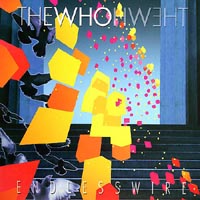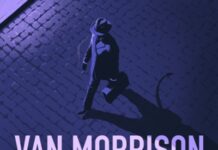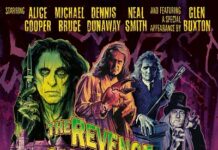OK, I admit it: I truly believed not so long ago that the Who were a creatively spent entity. Twenty-four years is just way too long between albums, especially for a group that remains active on the arena/stadium front and still charges a small fortune for concert tickets. And at every turn, chief songwriter Pete Townshend, a walking dichotomy of ideas, views, and tendencies, seemed put off by the mere mention of new Who music. He was far too occupied researching and writing books, revisiting past works like Tommy, Quadrophenia, and Lifehouse, and jet setting with hip girlfriend/socialite Rachel Fuller. The only one who’s ever really pushed for the Who carrying on and covering new ground has been Roger Daltrey. A marginal songwriter himself, the singer took on odd jobs — a cameo part on That 70s Show and a counselor at the Rock and Roll Fantasy Camp — while waiting for Townshend’s muse to come a-knocking. When talk of new music from the Who started to take on a more serious tone, I was cynical. Were they just going to whip up a couple of new songs to attach to yet another compilation package? Been there, done that. Was it going to be a half-hearted effort cast in the mold of the last couple albums from the early 80s? When Endless Wire finally made its way to the airwaves, I realized I had erred in my prejudgment of the ever resourceful Who.
Endless Wire is the best Who album since Who Are You. I haven’t really been particularly knocked out by a Who album since Quadrophenia, but there’s no reason to nitpick. The bottom line is that even without the most dangerous rhythm section in the world, Townshend and Daltrey have retained the gumption and firepower to deliver an album worthy of distinction. “Fragments,” co-written with composer Lawrence Ball, features a sequenced opening eerily similar (and probably intentional) to “Baba O’Riley” that soothingly begins the opus, “breathing out or breathing in” in all its glossy liberation. A seemingly deliberate contrast occurs when Townshend’s barebones acoustic guitar and Daltrey’s potently ragged voice boom forth to perpetuate the persecution of “A Man In A Purple Dress.” This tag-you’re-it traversal is present throughout — a various cornucopia of commentary, black humor, and mixed emotions culled from Townshend’s inner-most demons and dalliances interpreted via Daltrey’s capricious snarl — be it the sudden transparency of “Two Thousand Years” or the more streamline “It’s Not Enough.” A recalcitrant chemistry between the two remains a cornerstone of the Who, virtually untarnished despite the ravages of age, time, and hair styles.
As is his nature, Townshend’s propensity for storytelling finds its place in “Wire & Glass,” the mini opera based on the guitarist’s novella on modern intervention “The Boy Who Heard Music,” which comprises the second half of the album. “Sound Round,” supposedly written around the time of Who’s Next, kicks things off squarely in roaring fashion. “Pick Up The Peace” and “Mirror Door” sustain the momentum as drummer Zak Starkey maintains a frantic and controlled pace in his Keith Moon-like attack. The album’s title track, which appears in two versions on the disc — within the mini opera and as an extended standalone that concludes the album — may be the best, most memorable track of the lot. Its mid-tempo churn and rollicking chorus could easily find its way in as a permanent fixture on the Who’s set list. Packaged with a bonus DVD featuring five songs from a July 17, 2006 concert at the Vienne Amphitheatre in Lyon France, Endless Wire is the Who album fans have been waiting for. At this stage in the game, to expect anything on a grander scale is pointless, futile and unrealistic. Simply put, if Townshend and Daltrey can step it up and make records of this caliber, it might be a while before these two geezers call it a day.
~ Shawn Perry




















